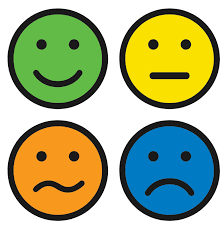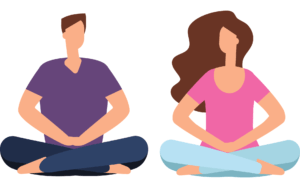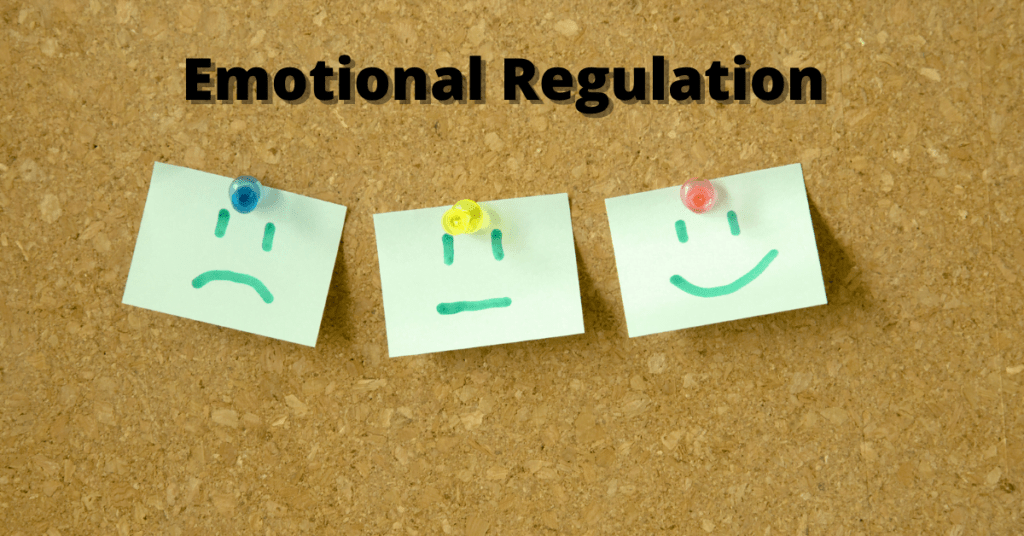Contents
What Is Emotional Regulation?
 Emotional regulation is the ability to manage your emotions in a healthy way. This includes being able to understand them, process them and express them in an appropriate manner. Emotional regulation can be thought of as the opposite of emotional dysregulation. This means that you have difficulties with understanding or managing your emotions. While many people may experience moments where they feel anxious or upset, someone with an emotional disorder may experience these feelings very frequently. These feelings are in a way that they are out of their control.
Emotional regulation is the ability to manage your emotions in a healthy way. This includes being able to understand them, process them and express them in an appropriate manner. Emotional regulation can be thought of as the opposite of emotional dysregulation. This means that you have difficulties with understanding or managing your emotions. While many people may experience moments where they feel anxious or upset, someone with an emotional disorder may experience these feelings very frequently. These feelings are in a way that they are out of their control.
How to Regulate Emotions?
There are several techniques you can use when trying to regulate your emotions:
Mindfulness Meditation
 This type of technique can help you become more aware of your thoughts, feelings, and stressors. The idea is that when you are feeling overwhelmed by emotions or situations then it can be helpful to step back from them for a moment. This is in order to process what is happening. Mindfulness meditation can also offer relief from anxiety symptoms. This is by training the brain to focus on one thing at a time. It is rather than worrying about multiple things simultaneously which leads to overload.
This type of technique can help you become more aware of your thoughts, feelings, and stressors. The idea is that when you are feeling overwhelmed by emotions or situations then it can be helpful to step back from them for a moment. This is in order to process what is happening. Mindfulness meditation can also offer relief from anxiety symptoms. This is by training the brain to focus on one thing at a time. It is rather than worrying about multiple things simultaneously which leads to overload.
Exercise
 There have been countless studies showing how exercise benefits the mind as well as the body. When you engage in physical activity your bodies release endorphins which work like morphine. They interact with opioid receptors within the brain cells which block pain signals and generate pleasurable ones instead. While exercising might not necessarily control your emotions, it can help you feel better about them.
There have been countless studies showing how exercise benefits the mind as well as the body. When you engage in physical activity your bodies release endorphins which work like morphine. They interact with opioid receptors within the brain cells which block pain signals and generate pleasurable ones instead. While exercising might not necessarily control your emotions, it can help you feel better about them.
Music Therapy
 Listening to calming types of music can have a beneficial effect on your brain. This is due mainly to the fact that music stimulates certain regions in our brains, including those involved with processing emotions and memories. Listening to relaxing tunes for approximately half an hour every day can help reduce anxiety levels as well as improve sleep quality by regulating both heart rate and breathing.
Listening to calming types of music can have a beneficial effect on your brain. This is due mainly to the fact that music stimulates certain regions in our brains, including those involved with processing emotions and memories. Listening to relaxing tunes for approximately half an hour every day can help reduce anxiety levels as well as improve sleep quality by regulating both heart rate and breathing.
Breathing Exercises

Through this method of regulation, you focus on your breathing patterns by practicing deep diaphragmatic breaths (with the help of a paper bag or an inhaling and exhaling machine). The goal is to get rid of carbon dioxide while bringing in oxygen which results in increased mental clarity.
Yoga

Yoga is an excellent way to deal with stress and anxiety. The deep breathing technique that yoga involves can help you relax both your body and mind, while also improving self-awareness.
Self Talk
 Oftentimes people are unaware of the negative dialogue they have going on in their head which leads them to feel overwhelmed by emotions or situations around them. The most effective way to overcome this is by practicing positive self-talk. This means focusing on the good things in life and not dwelling on negative thoughts. These negative thoughts might for example tell you something like “You’re such a failure” or “This is never going away”.
Oftentimes people are unaware of the negative dialogue they have going on in their head which leads them to feel overwhelmed by emotions or situations around them. The most effective way to overcome this is by practicing positive self-talk. This means focusing on the good things in life and not dwelling on negative thoughts. These negative thoughts might for example tell you something like “You’re such a failure” or “This is never going away”.
How to Handle More Intense Emotions?
 During times of extreme stress or anxiety, a person might struggle to regulate their emotions. They might find that they are unable to calm down without the use of medications. There are many anti-anxiety drugs available which work by reducing brain activity
During times of extreme stress or anxiety, a person might struggle to regulate their emotions. They might find that they are unable to calm down without the use of medications. There are many anti-anxiety drugs available which work by reducing brain activity
Since the ability to manage one’s emotions effectively is so important both personally and professionally, it’s crucial for everyone — not just those who have been diagnosed with mental health issues — to learn about effective strategies for managing them. That said, there are specific steps that individuals can take to improve their emotional regulation.
What Can Cause Difficulties with Emotional Regulation?

There are several factors that can lead to emotional dysregulation. These are including genetics, previous experiences, family environment as well as brain chemistry. For instance, if someone was exposed to trauma at an early age then they may have difficulties developing healthy coping mechanisms down the line. Likewise, people who were raised in families where emotions weren’t validated or supported may also go through similar problems later in life since they’d learned how to deal with their emotions only in an unhealthy way.
Research also suggests that people who are dealing with certain mental health conditions such as bipolar disorder or depression could be at risk of experiencing difficulties when it comes to emotional regulation. Having said this, not everyone with these disorders automatically experiences problems regulating emotions and some may even experience hyper-arousal (overreaction) instead of hypo-arousal (underreaction).
Conclusion
The human brain is complex. It’s constantly processing information. When we’re not feeling our best, it can be hard to manage all of the stressors in life and still do what needs to get done on a day-to-day basis. Luckily for us, people are finally beginning to understand how this happens – neuroscientists have made many breakthroughs over the years that provide insight into why our brains work as they do and how we can maintain mental health despite any obstacles thrown at us. One such example is emotional regulation; your ability to control impulses or mood swings from one moment to another without major interruptions in concentration or attention span. The more you learn about different ways you can regulate your feelings.
If you are looking for affordable Online Counseling MantraCare can help: Book a trial therapy session


